Category: Freeware and Software Reviews » Audio, MP3, And Music
In the age of music streaming such as Spotify and Apple Music where everything is categorized and searchable in seconds, you might find these tools useful as you go through your old collections. A MP3 metadata tag editor allows you to organize your existing song library, use these tools to fill in missing metadata information such as Album cover and genre.
Related Article 😍💰👉 10 Freeware To Rip CDs To FLAC Lossless And MP3 Lossy HD Audio Format
Why organize your MP3 when you can easily stream your music? Well, MP3 is still useful where there is no internet, such as outdoor camping or hiking. Without further ado, here are some free MP3, AAC, Flac, MP4, Wav metadata tag editors.
1. Mp3tag
Mp3tag is the most popular and a powerful easy-to-use tool to edit metadata of audio files. It supports batch tag-editing of ID3v1, ID3v2.3, ID3v2.4, iTunes MP4, WMA, Vorbis Comments and APE Tags for multiple files at once covering a variety of audio formats.
Furthermore, it supports online database lookups from, e.g., Discogs, MusicBrainz or freedb, allowing you to automatically gather proper tags and download cover art for your music library. You can rename files based on the tag information, replace characters or words in tags and filenames, import/export tag information, create playlists and more.
Supported Audio Formats are Advanced Audio Coding (aac), Apple Lossless Audio Codec (alac), Audio Interchange File Format (aif / aifc / aiff), Direct Stream Digital Audio (dsf), Free Lossless Audio Codec (flac), Matroska (mka / mkv), Monkey’s Audio (ape), Mpeg Layer 3 (mp3), MPEG-4 (mp4 / m4a / m4b / m4v / iTunes), Musepack (mpc), Ogg Vorbis (ogg), IETF Opus (opus), OptimFROG (ofr / ofs), Speex (spx), Tom’s Audio Kompressor (tak), True Audio (tta), Windows Media Audio (wma), WavPack (wv), and WAV (wav).
2. MusicBrainz Picard
Picard is a cross-platform music tagger written in Python. It is the next generation MusicBrainz tagging application. This new tagging concept is album oriented, as opposed to track/file oriented like the ClassicTagger was. Picard is written in Python, which is a cross-platform language, and makes use of cross-platform libraries – this allows the same code to run both on Windows, Linux and macOS.
- Multiple Formats – Picard supports all popular music formats, including MP3, FLAC, OGG, M4A, WMA, WAV, and more.
- AcoustID – Picard uses AcoustID audio fingerprints, allowing files to be identified by the actual music, even if they have no metadata.
- CD Lookups – Picard can lookup entire music CDs with a click.
3. TagScanner
TagScanner is a powerful tool for organizing and managing your music collection. It can edit tags of most modern audio formats, supports ID3v1/v2, Vorbis comments, APEv2, WMA and MP4(iTunes) tags. You can rename files according to information from the tags, import tag information from filenames or other sources, perform any text replacement and transformations in tags and filenames.
Also you may get album info and download covers via online databases like freedb, Discogs or MusicBrainz. You can create playlists in one click and export your collection to HTML, Excel or any user-defined format. Program has easy-to-use multilingual interface and built-in audio player.
- Powerful multiple files tag editor
- Import album information and covers from online databases like Discogs or MusicBrainz
- Generate tag information from file/foldernames
- Tag fields formatting and rearrangement
- Words replacement and case conversion from tags and filenames
- Supports MP3, OGG, FLAC, WMA, MPEG-4, Opus, Musepack, Monkey’s Audio, AAC, OptimFROG, SPEEX, WavPack, TrueAudio, WAV, AIFF, Direct Stream Digital files
- Supports ID3 1.0/1.1/2.2/2.3/2.4 tags, APE v1 and v2 tags, Vorbis Comments, WMA tags and MP4(iTunes) metadata
- Supports for embedded lyrics and cover art
- Resize cover art for portable devices on the fly
4. EasyTAG
EasyTAG is a simple application for viewing and editing tags in audio files. It supports MP3, MP2, MP4/AAC, FLAC, Ogg Opus, Ogg Speex, Ogg Vorbis, MusePack, Monkey’s Audio, and WavPack files. And works under Linux or Windows.
You can view, edit, write tags of MP3, MP2 files (ID3 tag with pictures), FLAC files (FLAC Vorbis tag), Ogg Opus files (Ogg Vorbis tag), Ogg Speex (Ogg Vorbis tag), Ogg Vorbis files (Ogg Vorbis tag), MP4/AAC (MP4/AAC tag), MusePack, Monkey’s Audio files and WavPack files (APE tag). You can also edit more tag fields: title, artist, album, disc number, year, track number, comment, composer, original artist/performer, copyright, URL, encoder name and attached picture
5. Kid3
If you want to easily tag multiple MP3, Ogg/Vorbis, FLAC, MPC, MP4/AAC, MP2, Opus, Speex, TrueAudio, WavPack, WMA, WAV and AIFF files (e.g. full albums) without typing the same information again and again and have control over both ID3v1 and ID3v2 tags, then Kid3 is the program you are looking for.
- Edit ID3v1.1 tags
- Edit all ID3v2.3 and ID3v2.4 frames
- Convert between ID3v1.1, ID3v2.3 and ID3v2.4 tags
- Edit tags in MP3, Ogg/Vorbis, DSF, FLAC, MPC, MP4/AAC, MP2, Opus, Speex, TrueAudio, WavPack, WMA, WAV, AIFF files and tracker modules (MOD, S3M, IT, XM)
- Edit tags of multiple files, e.g. the artist, album, year and genre of all files of an album typically have the same values and can be set together.
6. puddletag
puddletag is an audio tag editor (primarily created) for GNU/Linux similar to the Windows program, Mp3tag. Unlike most taggers for GNU/Linux, it uses a spreadsheet-like layout so that all the tags you want to edit by hand are visible and easily editable. The usual tag editor features are supported like extracting tag information from filenames, renaming files based on their tags by using patterns and basic tag editing.
Then there are Functions, which can do things like replace text, trim it, do case conversions, etc. Actions can automate repetitive tasks. Doing web lookups using Amazon (including cover art), Discogs (does cover art too!), FreeDB and MusicBrainz is also supported. There’s quite a bit more, but I’ve reached my comma quota. Supported formats: ID3v1, ID3v2 (mp3), MP4 (mp4, m4a, etc.), VorbisComments (ogg, flac), Musepack (mpc), Monkey’s Audio (.ape) and WavPack (wv).
7. AudioShell
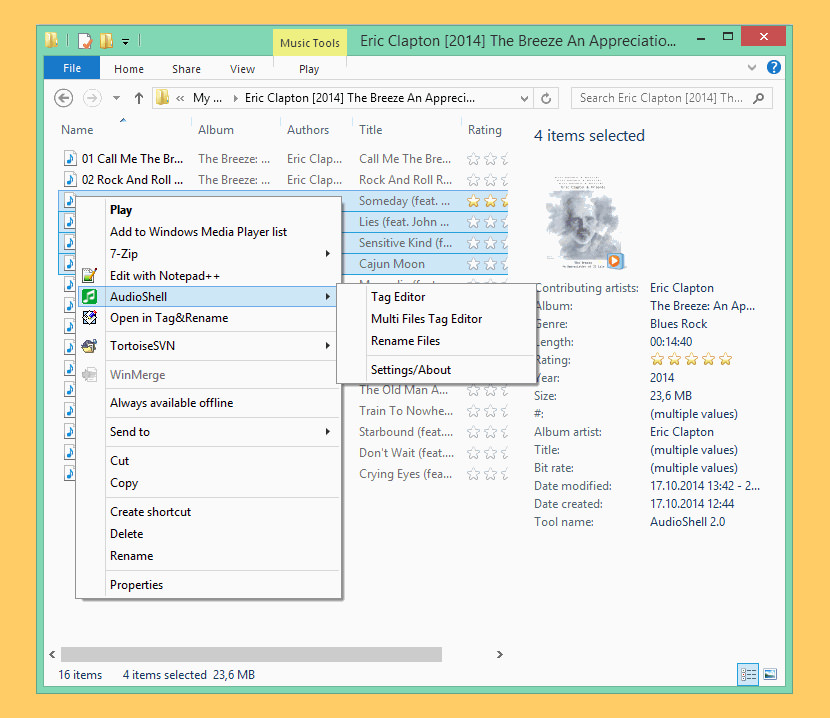
AudioShell 2 is a freeware Windows Explorer shell extension which allows you to view and edit ID3 meta-data tags directly in Windows Explorer. AudioShell adds ID3 tag editor and files rename tools into Windows system music files pop-up menu. AudioShell property shell handler adds detailed music tags information into Windows Explorer columns and Preview pane, thumbnail handler adds thumbnails with album art into Explorer. Full Unicode and 64 bit support.
8. MP3 Diags
In a few words, MP3 Diags is a GUI-based application that allows end-users to identify issues with their MP3 files, fix some of the issues and make other changes, like adding track information. It also lets you “look inside” an MP3 file.
Unlike some programs that are designed to deal with a single topic (like fixing VBR headers or adding cover art), MP3 Diags is a one stop solution that identifies more than 50 different issues in MP3 files and provides the means to fix many of them (well, not everything is fixable; you can’t make a 64kbps file sound like a 256kbps one.) Some of the more important issues that are found:
- Broken tags / headers / audio
- Duplicate tags / headers
- Incorrect placement of tags / headers (ID3V2, ID3V1, LAME, Xing, …)
- Low quality audio
- Missing VBR header
- Missing track info / cover art
- Broken track info / cover art
- Missing normalization data
- Character encoding issues (for languages other than English)


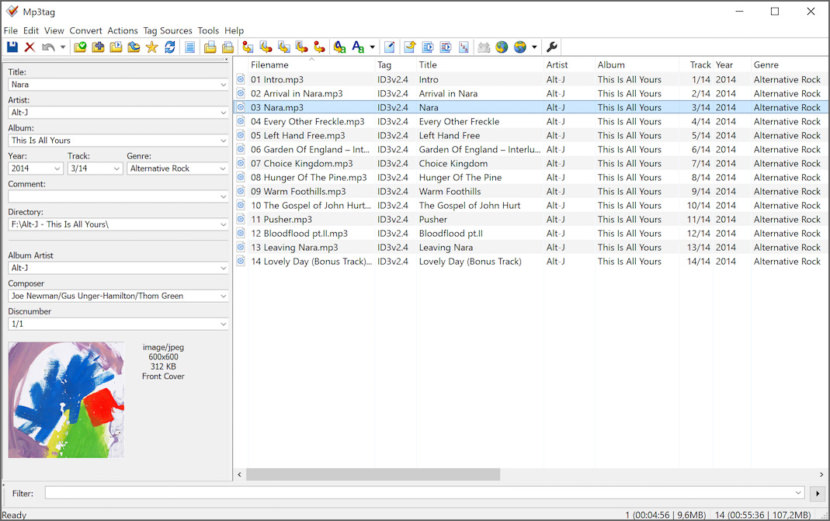
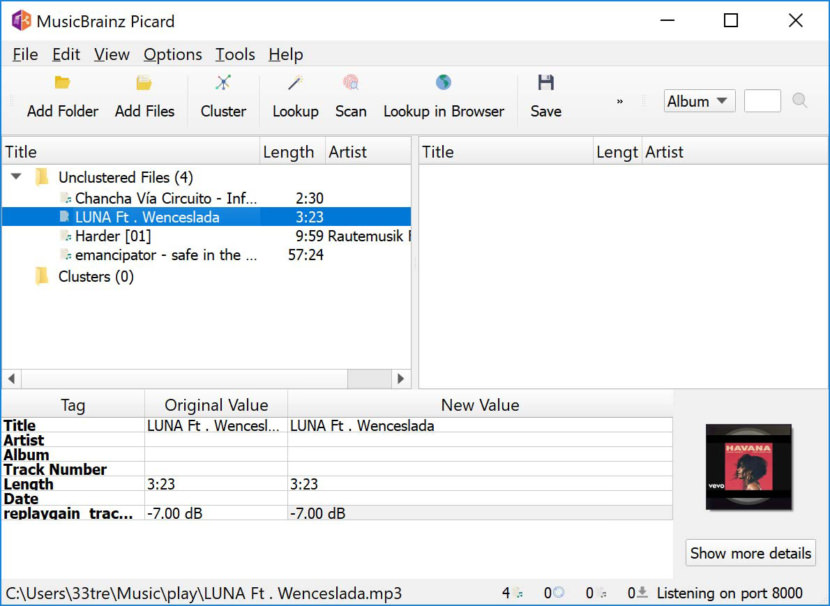
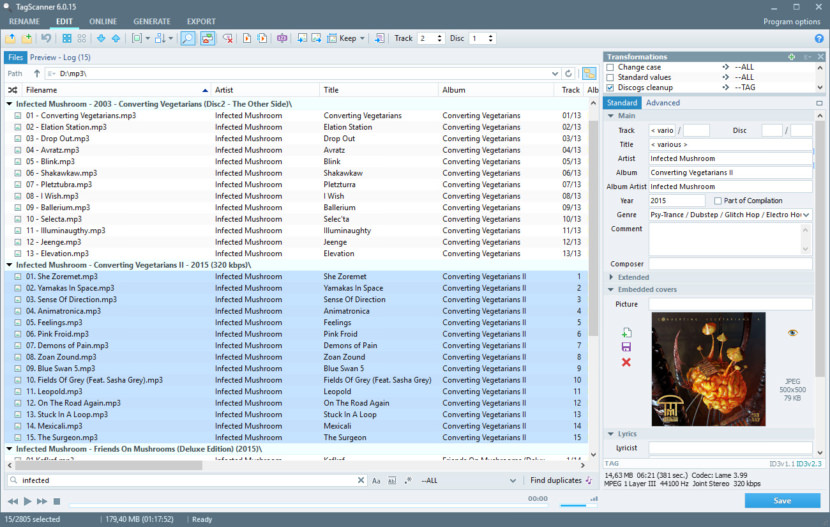
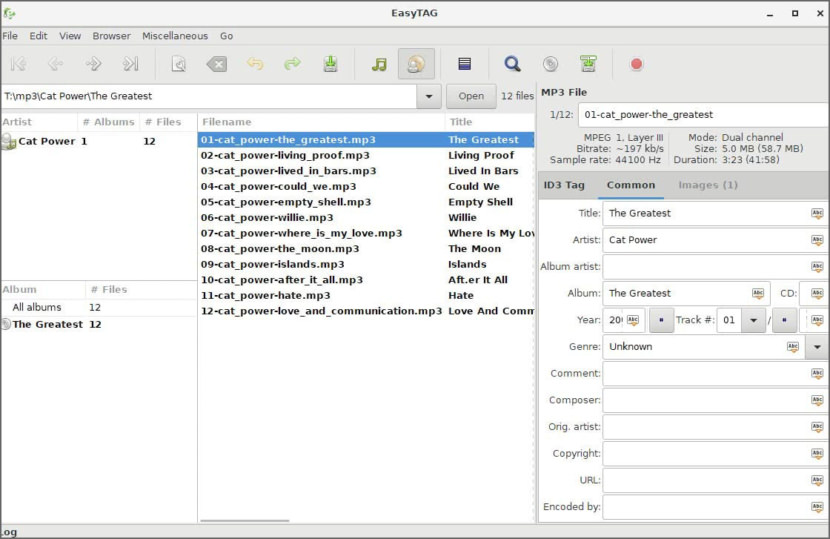
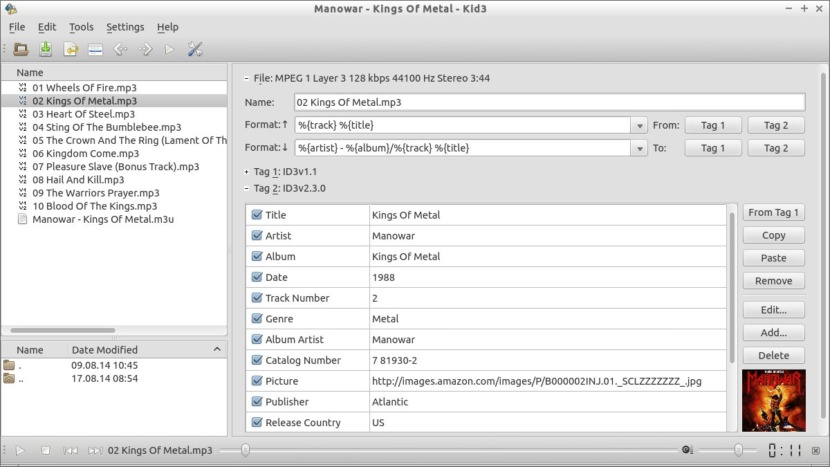
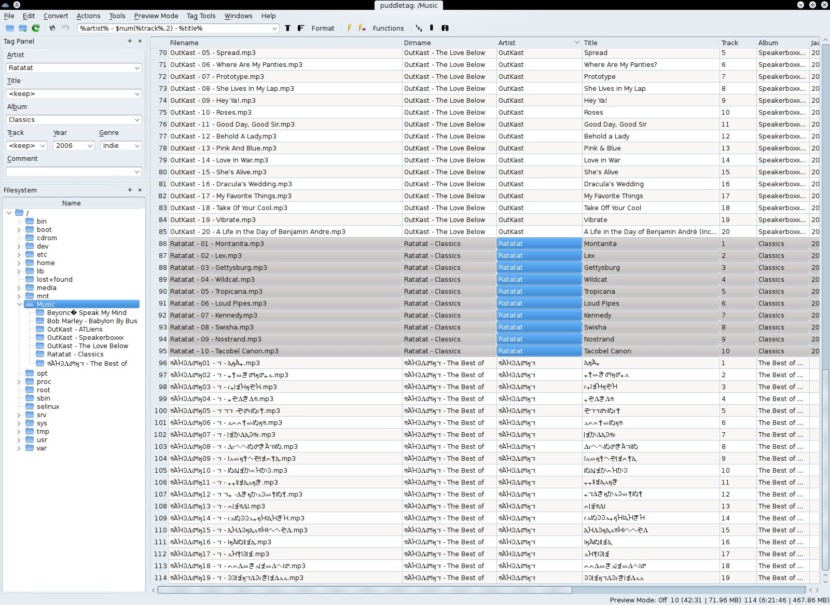
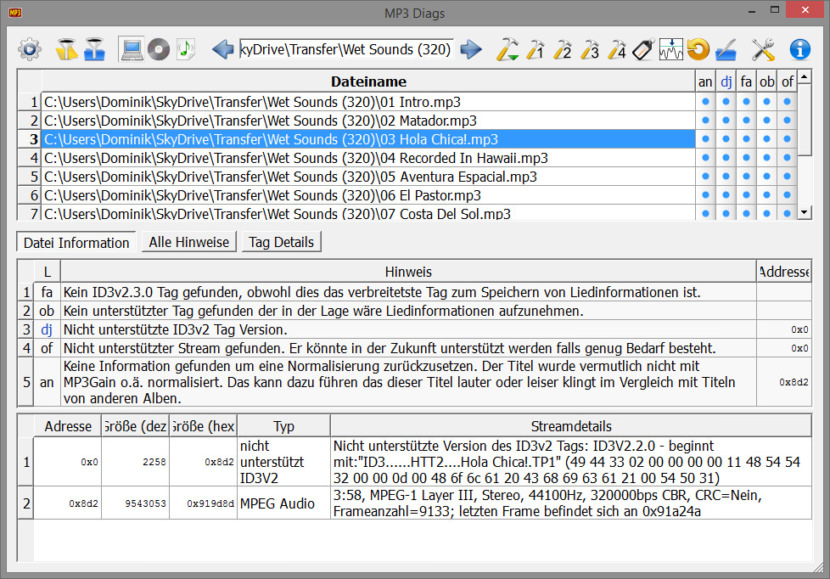
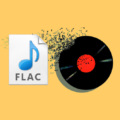
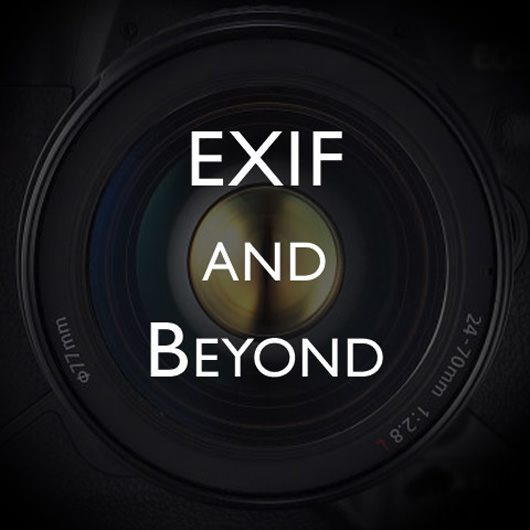


The best thing I think is about what audacity for windows is, it’s really useful to have to work with the terminal every time. But one thing I hate is the lack of a good audio player. I never really understood why someone would use OS X over Linux.
Not ONE of the listed Linux ‘tag editors’ change anything about the file or folder structure. The changes are only apparent to the tag editor itself. And depending on which Linux-based distro they run on, some of them lack most of their alleged functionality.
In comparison, Banshee, which is a tag editor as well as a media player does actually change the file and folder metadata in such a way that it is not only visible in the file system, but also shows in any other media player.
For example, it is possible to import audio files (to a ‘work in progress’ folder) and create a completely new compilation that actually shows the metadata edition. And it is possible to edit metadata for multiple files at the same time, in a matter of seconds.
I am yet to find ONE single other Linux application that has this capability, capability that has been a feature of iTunes since at least version 4.5(?), from 16 years ago!
Unfortunately, Banshee, the ONE application that actually works, has effectively been abandoned by its developer, and does not work in Ubuntu since 16.xx. I keep an old netbook with a custom 16.04 purely for the purpose of running Banshee.
As far as anything other than playing multimedia, with very few exceptional programmes/applications, Linux is rubbish, mainly because developers are apparently incapable of cooperating to create ONE, SINGLE, decent multimedia player/editor.
Mp3tag does rename files from tag and if puddletag is a Linux ‘clone’ of it, it should have the function. They homepage stated ‘renaming files based on their tags’.
Multi-item edit should be similar, just select the multiple tracks in the ‘spreadsheet’ grid and change the value in the tag panel on the top left, ctrl-s to save.
I use MusicBrainz Picard on Windows which supports file renaming. Since it is a cross platform app, it should work in Linux.